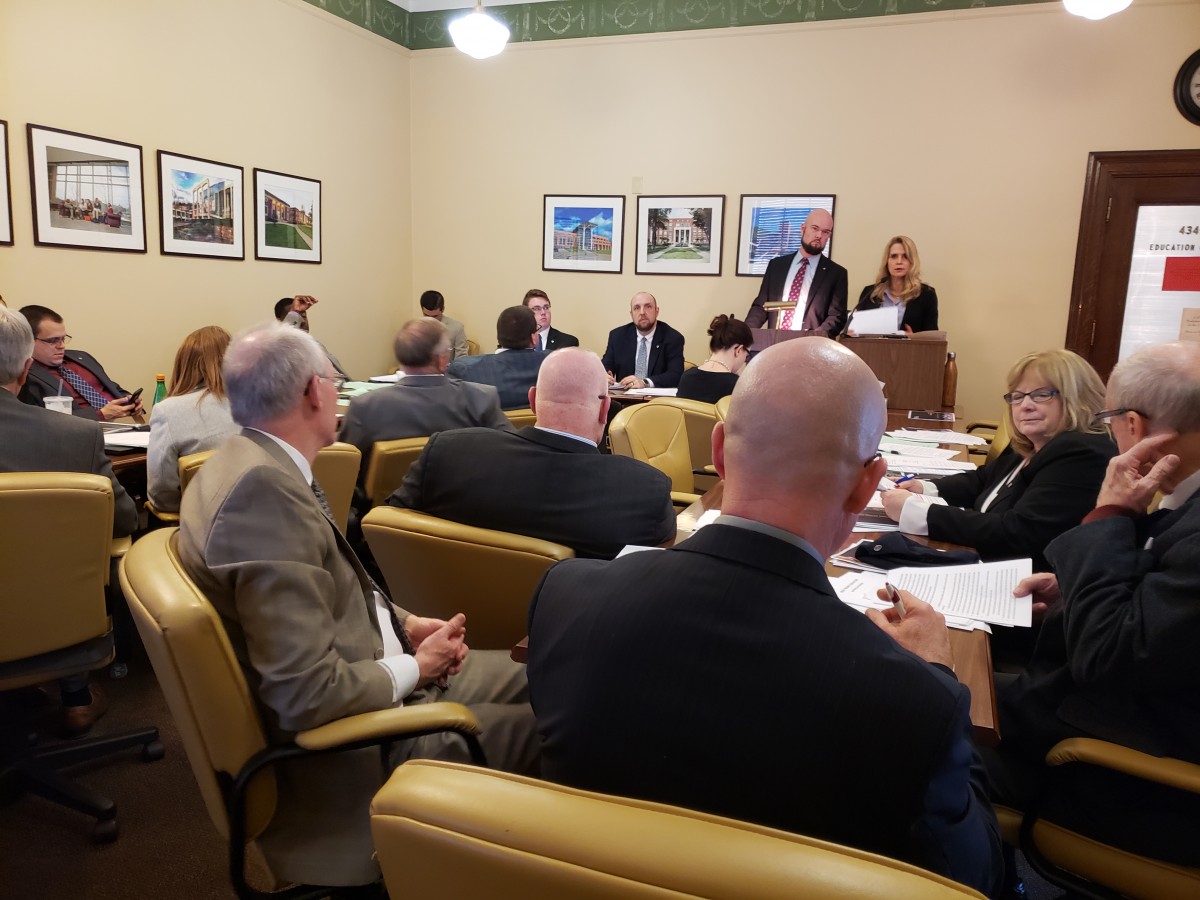CHARLESTON — The House Education Committee on Friday wrapped up its third day of work on SB 1 — dubbed the “free community college bill,” though it’s gone well beyond community college now — and sent it to House Finance.
The committee considered and rejected two more proposed amendments by Delegate Jim Butler, R-Mason, before putting the bill to a vote.
One amendment would have limited tuition hikes for students in the WV Invests Grants program to the previous year’s Consumer Price Index. The current limit for the two-year and four-year systems is 10 percent in a single year or a rolling average of 7 percent across three years.
Community and Technical College System Sarah Tucker said that limit could pose a problem whenever the Legislature decides to cut higher education budgets and allow the schools to make up the loss with tuition hikes.
Butler’s other amendment would have eliminated state funding for the program and made it entirely donor funded.
Delegate Lisa Zukoff, D-Marshall, said that if such a thing was possible, the schools would already be doing it and the bill wouldn’t be needed. And chair Danny Hamrick, R-Harrison, temporarily stepped down from the chair to say he understood Butler’s intent, but the change would be contrary to the purpose of the bill.
Leading up to the vote, Delegate Matt Rohrbach, R-Cabell said he’s looked at Tennessee’s similar program and how it has evolved. “This has turned out to be a real economic development and workforce development program,” he said. “This is an attempt to get a more skilled workforce, plain and simple.”
Butler said the program isn’t needs based or means tested. A person from a moderately wealthy family could be denied federal aid and then the state would have to cover the entire annual $4,040 cost for that person.
People value what they have worked and sacrificed for, he said.
The bill passed in a voice vote, with Butler offering one of the apparently two nays.
While the bill is called the free community college bill, it now goes beyond community and technical colleges and is more accurately described as a last-dollar-in program.
Under the WV Invests Grants Program as amended by the committee, eligible students can apply for grants to supplement their other financial aid to pursue an associate degree or certificate at a community or technical college or a four-year school that offers appropriate associate degree programs, or for the first two years of a four-year program.
The Department of Commerce will develop a hierarchy of high demand skilled professions and workforce needs with shortages. Eligible programs are those that offer courses to satisfy those workforce needs. The grant money goes to the school, not to the student.
Eligible applicants must be U.S. citizens or legal residents and have been a West Virginia resident for a year. They must have completed secondary education in a public, private or home school but have no post-secondary degree.
An applicant must be enrolled for at least six credit hours, be drug tested, participate in a community service program, and must remain in the state for two years following obtainment of the degree or certificate. A student who moves away within that window must repay all or part of the grant.
A grant may not exceed the average cost of tuition and fees at community and technical colleges: $4,040.
The fiscal note for the bill before the committee amended in the first two years of four-year programs was about $9.9 million. The cost with the additional schools hasn’t been estimated.
TWITTER @dbeardtdp Email David Beard at dbeard@dominionpost.com




